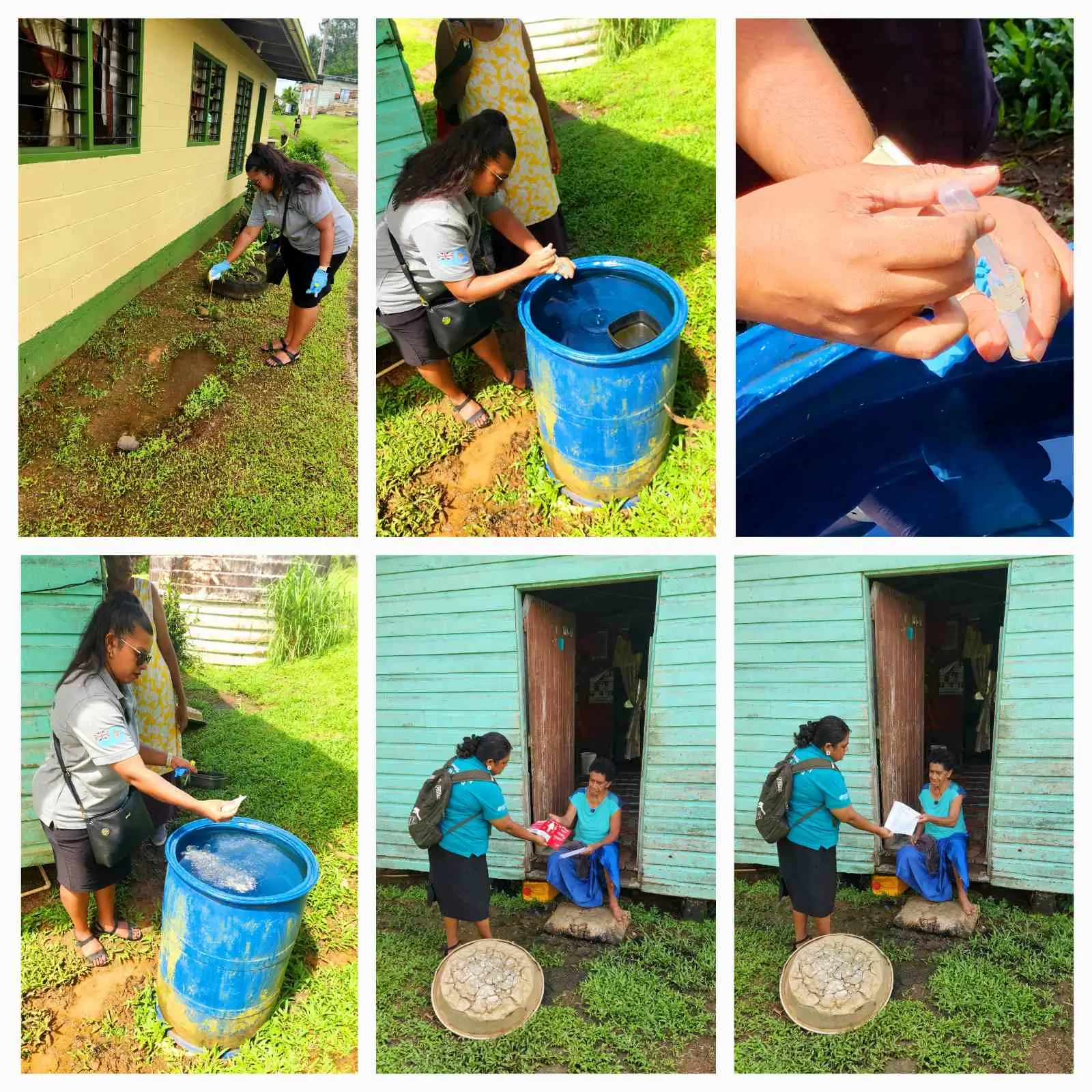
As part of its ongoing dengue surge response efforts, the Ministry of Health and Medical Services deployed its field team to Nayawasara Village, Tailevu, on April 14, 2025, to conduct a comprehensive community risk assessment and larval surveillance.
The operation, carried out between 8:40 a.m. and 2:15 p.m. by health inspectors SAHI Radhika and AHI Alissa, involved dengue awareness sessions, community WASH (Water, Sanitation, and Hygiene) risk assessments, food business surveillance, and larval sampling. IEC (Information, Education, and Communication) materials were distributed to 27 households, covering a population of 169 individuals.
The team conducted a detailed community assessment, reporting that 53.1% of houses were made from corrugated iron, 28.1% wooden, and 18.8% concrete. About 71.9% had attached kitchens. All households reported access to treated water. Waste disposal methods included burning (35%) and communal disposal (65%), while sanitation facilities consisted of flush toilets (71.9%), water seal (21.9%), and pit toilets (6.3%).
Larval surveillance across 32 households revealed 21 water-holding containers and 4 positive larval samples. In response, vector control measures included emptying drums and tyres, applying VectoBac to water receptacles, and community clean-up advisories.
Enforcement measures included four abatement notices issued for mosquito larval presence and one notice for the illegal operation of a food business.
Residents were urged to maintain clean compounds, dispose of or fill water-holding containers, cover stored water, and keep grass trimmed to reduce mosquito breeding grounds.